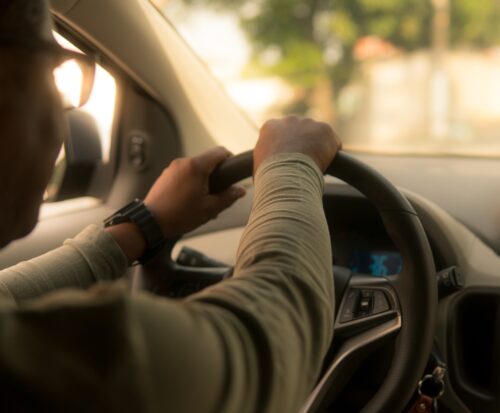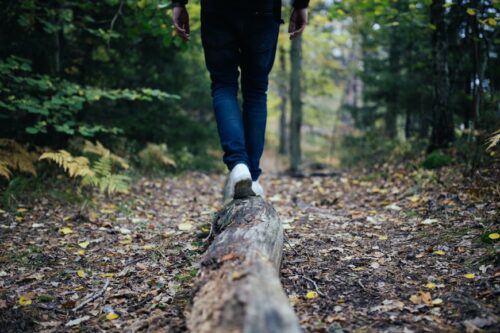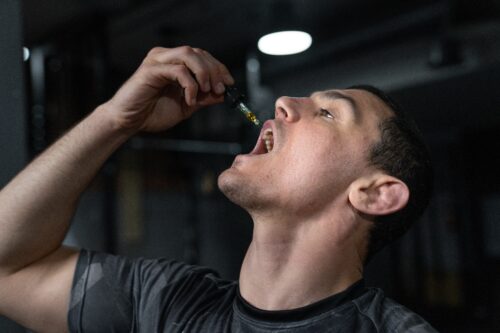Because CBD is not psychoactive or addictive, the World Health Organization (WHO) and the European Court of Justice do not classify it as a drug.
It is therefore authorised for sale and consumption in France, except that :
- the THC content of a product must not exceed 0.2%.
- and that minors are not permitted to purchase cannabidiol products.
But what does the science say about the impact of CBD consumption on road safety? What is allowed?

Effects on driving: what does the science say?
2 recently published scientific studies reveal that CBD-dominant cannabis consumption does not affect driving ability.
Last December, a study led by the Lambert Initiative for Cannabinoid Therapeutics at the University of Sydney and published in the Journal of the American Medical Association involved 26 participants who 'vaped' cannabis containing different ratios of THC and CBD and then drove a 100 kilometre route under controlled conditions on public roads.
For Dr Thomas Arkell, the result is very clear: CBD does not affect driving ability.
What measurements and with what protocol?
The second study is a Swiss study, published a few months ago. " To our knowledge, this is the first study to evaluate the potential impact of CBD consumption on road safety," explain its authors, Tim J. Gelmi, Wolfgang Weinmann and Matthias Pfäffli.
Published in the Bible of scientific literature, PubMed, which contains 33 million articles and studies related to science, biology and medicine, the authors set themselves the ambitious goal of evaluating the impact of CBD on psychomotor and cognitive abilities related to driving. In short, it is everything that helps us to analyse a situation, make a decision and react once we are behind the wheel.
In this process, 33 volunteers were divided into two groups. One group received a placebo while the second group consumed CBD-dominant cannabis (16.6% CBD and 0.9% THC, above the legal threshold in France which is 0.2%).
These volunteers then underwent :
- On the one hand, tests that are part of a measurement system commonly used (in 26 countries) to assess driving ability,
- secondly, balance and coordination exercises regularly used by police officers in Switzerland in the event of a traffic offence or control, to see if there are any physical impairments due to drug or alcohol use.
Reaction time, behaviour in stressful situations, ability to concentrate, balance, coordination, blood pressure, ... Everything has been evaluated and recorded to establish what, if any, risks are involved when driving.

Focus on reaction time
When you think of the CBD and driving combo, you might think of slower reaction times and reflexes. But the figures are there: in the series of tests based on light and sound stimuli, the group that consumed CBD-dominant cannabis had an average reaction speed of 60.6 s, while that of the placebo consumers was barely above that (61.0 s). Only one blink of the eye (0.4 s on average) separated the two averages.
CBD does not affect coordination
In order to prevent accidents on the road, it is of course necessary to be able to rely on a strong coordination.
In this work, the researchers found that out of 66 coordination tests, 6 were outside the so-called normal reaction time range of 20-45 seconds.
Note: of these 6 marginal cases, only one involved a person who had taken CBD (the hypothesis being that this person had perhaps not understood the instructions properly). The other 5 cases concern only people who have had the placebo.

What conclusions?
The scientists' conclusions are very clear:
- "between a person who has consumed CBD-dominant cannabis and a person who has had the placebo, there are no significant impacts on reaction time,
- and "no change was observed in terms of behaviour, psychomotor skills, ability to orientate in space, mood swings, ability to converse".
Consumption and control: what is allowed?
In France, consuming CBD is legal if the THC content of the product is below 0.2%. But what can you expect when you drive: withdrawal of your driving licence, complaints during a road check, penalties, etc.? What is the minimum level at which a person can be considered positive during a roadside check by the police?

2 issues: concentration and timing of consumption
As CBD is legal, there is no risk of testing positive for this substance. As Dr Patrick Daimé, a general practitioner and Vice-President of Addictions France, explains: "the tests specifically look for THC, so pure cannabidiol does not test positive "*.
The question is more to pay attention to the following 2 elements:
- the THC concentration of the products (whether it is cannabis flowers, oils or other edible products which can all, according to the mode of production, present an absence of THC or a high rate thus positive during a control),
- the time of consumption of CBD. In scientific studies, the THC level in the blood is 2.6 micrograms per litre immediately after consumption, while 45 minutes later it is 0.9 mg/mL. The Australian study shows that 4 hours after consumption of moderate to high THC cannabis, there is no effect of THC on driving.
Can you be positive in a saliva or urine test?
In France, law enforcement agencies, both police and gendarmerie, have saliva and urine tests to detect drug use.
As stated in the Order of 13 December 2016:
- Saliva tests are positive at 15 ng THC per millilitre of saliva,
- The urine tests are performed at 50 ng THCCOOH (THC carboxylic acid) per millilitre of urine.
For CBD, if it contains less than 0.2% THC as required by French regulations, it will not cause a positive saliva or urine test.
On the other hand, the risk of a driving licence suspension is clearly not zero, firstly because the origin and composition of a product are not always very transparent, and it may contain more THC than is permitted in France.
Secondly, because if a saliva test carried out by the police is positive, drivers are sometimes not systematically informed of the fact that they have the right to take a blood sample for further investigation.
Some advice
In short, to reconcile CBD and driving, it is best to :
- Use herbal teas, sprays or oils, such as our Wellness THC-FREE oils. If CBD is smoked, the mucous membranes of the mouth are soaked, and saliva tests have a harder time telling the difference,
- wait a little while after consumption before driving,
- and only consume products whose origin, and therefore composition, is known.
* Source: Santé Journal des Femmes, article dated 20 October 2021

